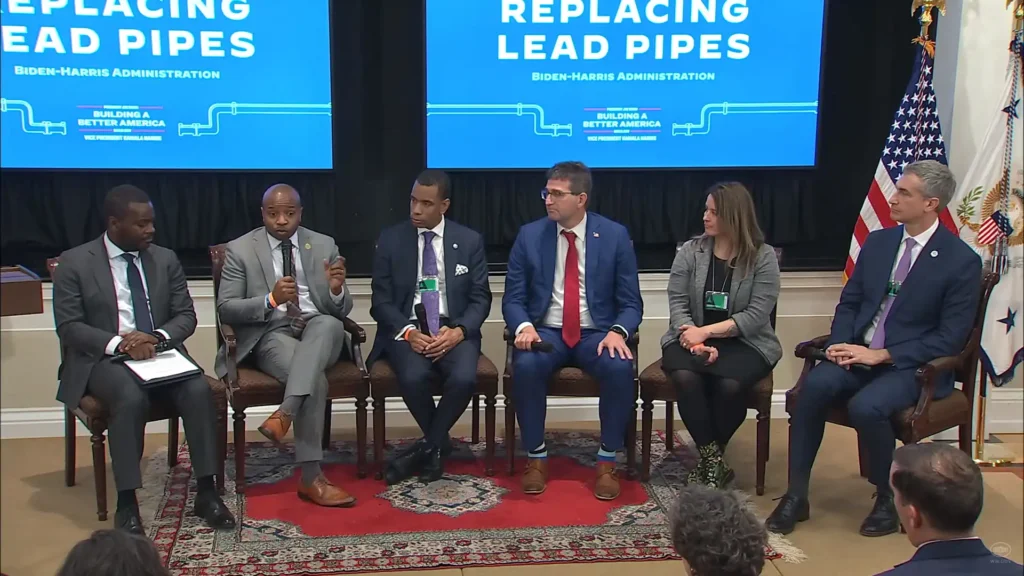There is power in coalition – learning from communities that have seen positive results is the first step to exploring what success can look like in your community.
The Great Lakes Lead Pipes Partnership was formed in April 2024 with three participating mayors: Mayor Mike Duggan of Detroit, Mayor Brandon Johnson of Chicago, and Mayor Cavalier Johnson of Milwaukee. These three Great Lakes cities are among those with the most lead pipes in the country. This first-of-its kind mayor-led partnership is designed to create shared learnings, highlight emerging best practices, and to replicate successes from city to city facing similar challenges.
Our partnership with the Great Lakes Lead Pipes Partnership will safeguard effective, equitable implementation of existing federal funds. We’ll be working to make sure we share best practices with one another so we can pull those services out of the ground. And we’ll also work to overcome some of the common challenges that we see on the ground in our own communities.
Mayor Johnson of Milwaukee at White House Water Summit (April 2024)
